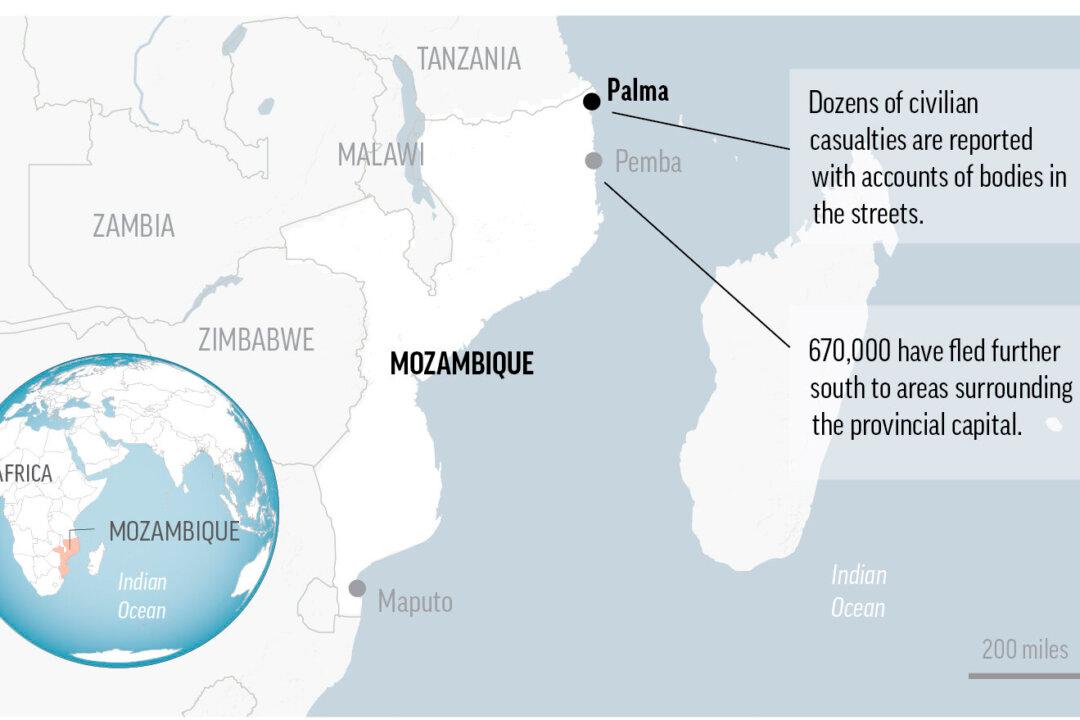JOHANNESBURG—Rebels fought the Mozambican army Sunday for the fifth straight day for control of the strategic northern town of Palma, as reports came in that dozens of civilians have been killed and bodies were littering the streets. The fate of scores of foreign energy workers was also unknown.
Some of the dead had been beheaded, according to Human Rights Watch. An attempt by expatriate workers to flee to safety came under heavy fire, causing many deaths, according to local reports.





